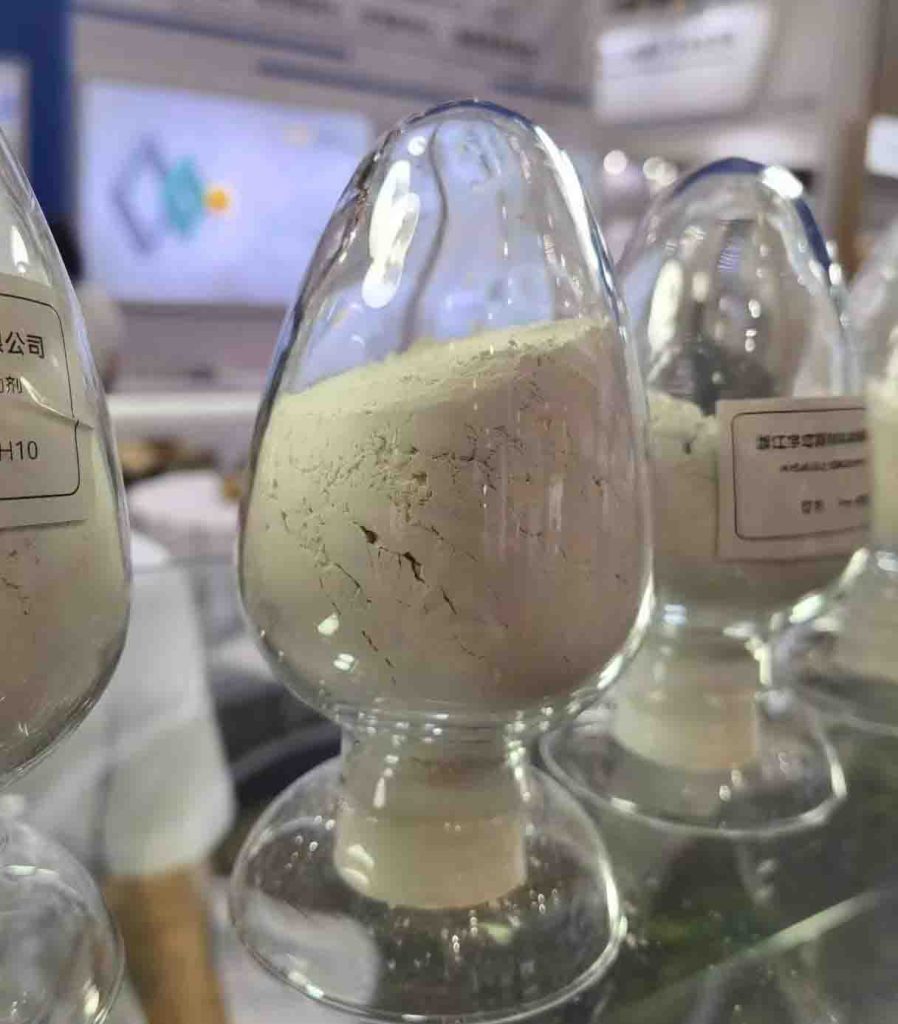Organic Bentonite Clay
What is Bentonite?
Organic Bentonite Clay : With its original aliases being ‘mineral soap’ or ‘soap clay’, bentonite is renowned for its high absorption and swelling rate. It’s called the “clay of 1,000 uses” for a reason! This versatile mineral is widely used in drilling muds specifically for oil and gas resource excavation. As a natural material that develops over time through volcanic ash deposition, it boasts incredible absorptive and adsorptive properties which have made it gain popularity amongst multiple industries.
With robust absorption capacities complemented by high adsorption abilities– this enhanced product has become highly relevant across industries like oil extraction due to its utility within drilling mud, as a bonding agent in foundry environments, and for supplying ingredients to skincare product manufacturers.
What is Bentonite Clay? |Organic Bentonite Clay
Bentonite clay is a type of clay formed from volcanic ash that features montmorillonite as its primary mineral component of the smectite group. The most distinctive attribute of bentonite clay is its capacity to soak up and retain water efficiently by turning into a gel like structure once hydrated hence making it a natural absorbent with broad ranging applications.
Zhejiang Camp Shinning’s production process includes modifying organoclays that improve suspension and viscosity in hydrophobic bentonite-based emulsions. These modified clays are fundamental components used to manufacture paints, coatings or other emulsified products across multiple industries. In addition they also possess effective properties for adsorbing organic compounds alongside their other benefits towards diverse applications.
Organic Bentonite Clay Unique Properties
Like many variations of its kind Organic Bentonite Clay demonstrates an impressive ability – one that involves swelling upon contact with water resulting in a gel like texture. This characteristic makes it considerably useful in circumstances that call for moisture retention as the capacity to absorb and retain water in one place.
Furthermore, when compared with its regular counterpart Organic Bentonite Clay is adeptly customized with organic compounds to further maximize its efficiency. Due to improved absorption and adsorption capabilities brought about by this enhanced modification of the clays’ properties it is highly effective in drilling fluids; an essential factor that helps regulate fluid loss while increasing viscosity during oil and gas exploration operations. Organic bentonite clay is often produced from high-quality, natural sources and is processed using organic methods. It is free from synthetic additives, chemicals, or contaminants, making it a preferred choice for those seeking natural and organic products.
Organic bentonite clay boasts of unique traits that make it an excellent choice for various industrial uses. Manufacturers adopt it into their formulations for cosmetics, paints, adhesives and sealants because of its ability to provide desirable attributes such as improved texture and consistent quality. In addition to serving as a rheology modifier by altering product viscosity levels the clay also acts as a helpful stabilizer ensuring optimal performance over time under diverse environmental conditions.
How to Use Bentonite Clay?
Bentonite Clay has earned a reputation for being an incredibly versatile substance; given that both organic calcium and natural forms exist like organic Bentonite Clay Powder! Not only that but other variations like sodium bentonite clay, organoclay or Organophilic clays also add up new dynamics and possibilities. For individuals looking to benefit from Bentonites’ unique properties through different applications- here are some steps to use them.
- Selecting suitable bentonite clay for your drilling requirements is essential for effective performance. Sodium bentonite clay, organoclay and organophilic clay are all options worth considering. Organic bentonite clay from Zhejiang Camp Shinning should be noted for its natural properties. Beginning with a tidy mixing tank or pit, add the bentonite clay powder gradually while stirring continuously into the water mixture. To optimize outcomes during drilling activities, it’s crucial to attain a uniform suspension.
- Proper monitoring of drilling fluid viscosity is necessary after incorporating bentonite clay powder into the mixture. It’s an integral characteristic that ensures cuttings remain suspended and wellbore stability is maintained during drilling. In order to achieve desired levels, adjust bentonite clay concentrations or introduce additional additives as required. For accurate monitoring, be sure to regularly measure fluid viscosity using suggested methods like a viscometer.
- Controlling fluid loss is critical during drilling operations, which is why Bentonite clay has gained significance for its remarkable capability in this regard. The aforementioned material develops a layer on wellbore surfaces that acts as a filter cake, reducing permeability and curbing any chance of fluids seeping into the formation. Keeping an eye on specific conditions while regulating bentonite clay concentration facilitates optimum control over fluid loss.
- For ideal performance, bentonite clay in drilling fluid demands a fitting conditioning process. To achieve this, it is crucial to maintain the appropriate features such as viscosity, fluid loss, and suspension characteristics. Regular examining and supervision of the drilling fluid aspects are essential for vital adjustments and additions of bentonite clay or other components to preserve the desired mud features.
What is Bentonite Used For?
Organic bentonite clay powder and organic calcium bentonite clay have proven to be useful across different sectors. The following are primary applications of bentonite:
- Drilling Fluids
- Environmental Applications
- Paints and Sealants
- Cosmetics and Skincare
- Water Purification
- Agriculture and Gardening
- Foundry and Construction
- Cat Litter and Pet Care
- Industrial Applications
What is Montmorillonite Clay?
Part of the smectite group, Montmorillonite Clay gets its name from where scientists first identified it – in France’s town called Montmorillon to be specific. This kind comprises mainly layered aluminosilicates with montmorillonite being the prominent mineral.
These thin layers consist of silicate tetrahedra pairs amidst which lies sheets of alumina octahedra; sequestered between them are cations and water molecules reinforced through weak electrostatic forces. Perhaps the most fascinating characteristic of Montmorillonite clay – swelling up and retaining moisture – leads to a pliant, gel-like texture. Cation Exchange Capacity (CEC) refers to how efficiently this type of clay attracts, and controls positively charged ions, towering over many other materials.
Bentonite Clay and Montmorillonite Clay: Which One Should You Use?
Bentonite and montmorillonite clays might be used synonymously at times; however there exist fundamental distinctions between them. Primarily speaking the divergence arises due to the elevated content of montmorillonite present in bentonite as compared to other varieties. This can influence how these types of clays are applied.
When it comes to swelling ability, montmorillonite clay surpasses bentonite clay by quite some margin. Thanks to its remarkable capacity for absorbing water, this type of clay can increase by several times its original size and transform into a gel-like consistency that proves ideal for specific industrial applications. Among these purposes are the creation of drilling fluids or as an adhesive medium utilized to mold foundry models.
Its’ not uncommon to see people describe montmorillonite as being a more refined form of clay than bentonite. One potential explanation for this lies in the way that both materials are sourced and processed – while bentonite may contain various impurities or minerals depending on these factors montmorillonite typically has a higher degree of purity and concentration when it comes to this specific type of clay mineral. That’s why many consumers seek out products made with primarily with montmorillonites.
Montmorillonite clay is often the go to option when looking for a type of clay that excels at absorbing water effectively. Particularly useful in applications like molding or drilling fluids where high swelling capacity is critical this type of clay efficiently retains moisture. However. If affordability is an issue or access proves difficult. Many turn instead to bentonite – a readily available alternative that can come with lower price points, but possibly less impressive performance compared to montmorillonite-based options.
Difference Between Organic and Inorganic Bentonite Clay
Organic bentonite clay has been derived from naturally occurring deposits rich in clay minerals that are created over extended periods due to natural processes such as slow decayed vegetation. In contrast its counterpart- inorganic bentonite is created via exposure to natural elements like volcanic ash or mineralized silt but progressed through weathering processes.
The process of creating organic bentonite clay involves integrating plant materials and decomposed natural components into the matrix structure—a significant distinction from its inorganic counterpart. This infusion establishes unique characteristics and performance for the organic variant due to the presence of essential organic matter while presenting minimum amounts in an inorganic setting.
When it comes to comparing the efficacy of organic versus inorganic bentonite clay variants, it is clear that organic versions tend to outperform their inorganic counterparts. This is due in large part thanks to the inclusion of powerful organic matter, which ensures a more thorough dispersion throughout various applications. As such, this type also achieves higher viscosity than its non-organic counterpart provides generally more stability than its chemically treated variety.
Where to Buy Bentonite Clay?
For individuals on the hunt for quality bentonite clay products online, opting for an e-commerce platform will provide an array of choices. With numerous brands offered in packaging options ranging in size, you can browse through tailored collections that include sodium and calcium bentonite varieties.
Should you wish to acquire bentonite clay from Zhejiang Camp-Shinning, it is our privilege as a reputable Chinese organization that deals exclusively in organoclay and organic bentonite clay to offer our services. Our company website or contact information is at your disposal as a direct means of communication with us. We stand ready to impart vital particulars about product options, pricing packages, and procurement procedures.
Our commitment at Zhejiang Camp-Shinning goes beyond simply delivering high-quality organic bentonite and organoclays – we strive to provide comprehensive support for our customers throughout their buying journey. Our products Organic Bentonite Clay are available in three size options: compact 25 kg bags convenient for small-scale use; medium-sized packages with up to 500 kg capacity; and larger options up-to-thousand-kgs keeping bulk orders in mind. To ensure that our products meet your specific requirements appropriately applied at your end-use cases we welcome all requests for clarifications on our product range without hesitation!


